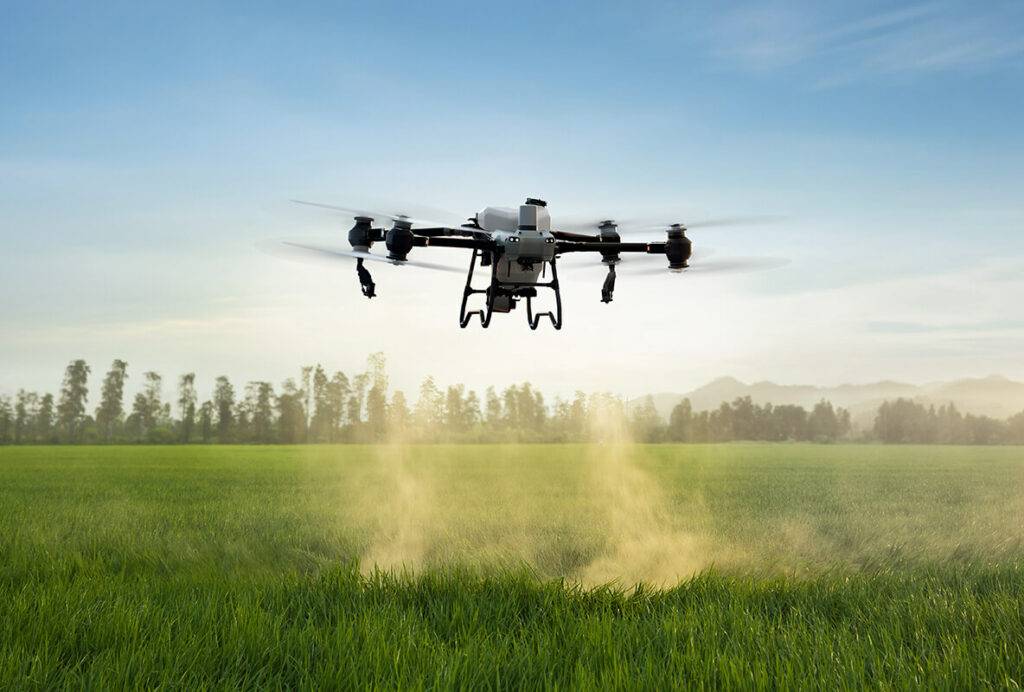Can Drones be Used for Crop Spraying?
Advancements in technology have revolutionised many aspects of modern agriculture, and one of the most exciting innovations is the use of drones for crop management. Among their various applications, one particularly promising area is precision crop spraying. In regions like Rotorua, where agriculture plays a significant role, adopting precision crop spraying using drones is transforming the way farmers approach pest control and fertilisation.
What is Precision Crop Spraying?
Precision crop spraying involves the targeted application of pesticides, herbicides, or fertilisers to crops. Unlike traditional blanket spraying methods, precision crop spraying ensures that only the required amount of chemicals are applied exactly where needed. This reduces wastage, environmental impact, and cost, while enhancing yield quality.
Drones equipped with advanced sensors and GPS navigation are ideally suited for this task. Using precision crop spraying in Rotorua has shown great potential due to the diverse terrain and varied crop types found across the region.
How Do Drones Improve Crop Spraying?
Using drones for crop spraying offers several advantages over conventional ground or aerial spraying methods:
-
- Enhanced Accuracy and Efficiency
Drones can fly low and slow over crops, enabling precise application of sprays. They use GPS and mapping technology to target specific areas that require treatment, avoiding over-application or missing patches. This accuracy is crucial in Rotorua’s agricultural landscape, where uneven terrain can make traditional spraying challenging.
- Enhanced Accuracy and Efficiency
-
- Reduced Environmental Impact
By limiting the use of chemicals to only affected areas, drones help minimise chemical runoff into nearby water bodies and reduce air pollution caused by drift. Precision crop spraying in Rotorua benefits local ecosystems and complies with strict New Zealand environmental standards.
- Reduced Environmental Impact
-
- Labour and Cost Savings
Drones reduce the need for manual labour and heavy machinery, which can be costly and time-consuming. Especially in Rotorua’s hilly regions, drones can access hard-to-reach farmland quickly, cutting down on operational time and costs.
- Labour and Cost Savings
-
- Data Collection and Monitoring Capabilities
Modern agricultural drones can be equipped with multispectral cameras and sensors that monitor crop health in real-time. This data supports informed decision-making about when and where to spray, enhancing the effectiveness of precision crop spraying in Rotorua.
- Data Collection and Monitoring Capabilities
Case Studies of Drone Use in Rotorua Agriculture
Several Rotorua farmers have begun integrating precision crop spraying drones into their operations with promising results. For example, vine growers in the region have used drones to apply fungicides precisely during critical growth stages, resulting in healthier grape yields with minimal chemical use.
Similarly, dairy farmers use drone-based spraying on pasture to control weeds and improve feed quality efficiently. These early adopters report both improved crop health and cost reductions, demonstrating the practical benefits of drone technology in Rotorua’s agricultural sector.
Future Outlook for Drone Crop Spraying in Rotorua
As technology advances, drones will become even more capable, with increased payloads, longer flight times, and better sensors. Integration with AI and machine learning could enable fully automated crop spraying tailored to crop health at the individual plant level.
In Rotorua, ongoing innovation and increasing awareness of sustainable farming practices make precision crop spraying with drones an attractive option for growers looking to improve productivity while protecting the environment.
Final Thoughts
Drones are poised to significantly enhance precision crop spraying in Rotorua by offering targeted, efficient, and environmentally friendly ways to manage crops. Despite some challenges related to cost and regulation, the benefits such as improved accuracy, reduced chemical use, and time savings make drones a valuable agricultural tool. As Rotorua farmers continue to adopt this technology, the future of crop spraying looks smarter, greener, and more sustainable than ever before.
